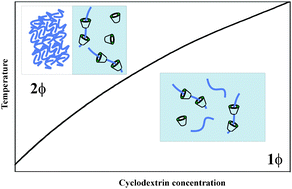Temperature-controlled poly(propylene)glycol hydrophobicity on the formation of inclusion complexes with modified cyclodextrins. A DSC and ITC study†
Abstract
The study highlighted the main forces driving the formation of hydroxypropyl-cyclodextrins (HP-CDs) +


 Please wait while we load your content...
Please wait while we load your content...